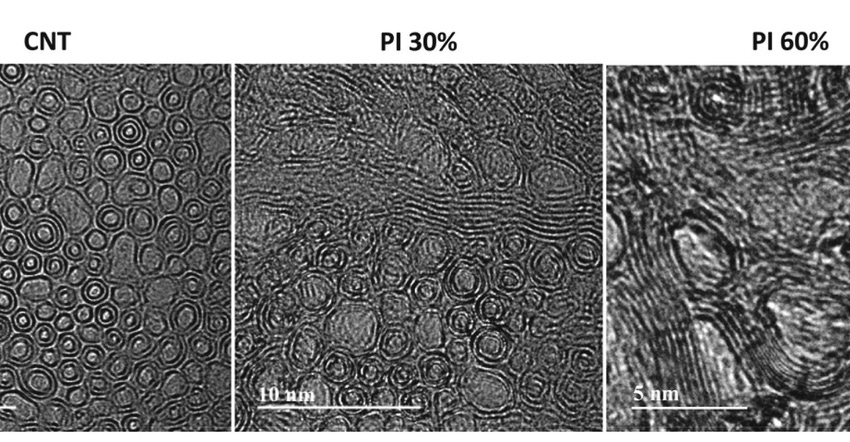Korean researchers have developed a low-cost fabrication technology for carbon-nanotube-based composite carbon fibers with high modulus and tensile strength.
March 8, 2023

Carbon nanotubes (CNTs) are novel materials boasting 100-times the strength of steel at 75% less weight. Further, conductivity can be as high as that of copper. If fibers could be made using these CNTs, they theoretically could exceed the performance of existing carbon fibers, making carbon-nanotube-based fibers a novel material of interest for the aerospace, military, and mobility sectors. However, maintaining the outstanding properties of CNTs in fibers is very challenging and commercialization would be difficult because of the extremely high cost of carbon nanotubes. That may change thanks to research coming out of Korea.
A low-cost fabrication technology for CNT-based composite carbon fibers with high tensile strength and modulus has been developed by a research team led by Dr. Bon-Cheol Ku of the Korea Institute of Science and Technology (KIST) Jeonbuk Institute of Advanced Composite Materials in collaboration with researchers led by Professor Han Gi Chae from the Ulsan National Institute of Science and Technology (UNIST). The study was published in the journal Composites Part B: Engineering.
Carbon fibers are conventionally carbonized from polyacrylonitrile (PAN) polymer or pitch derived from pyrolyzed fuel oil. The researchers developed a technology that greatly improved the modulus while maintaining high strength by utilizing carbon nanotubes in conjunction with polyimide (PI) resin.
The Korean team successfully fabricated fibers with high modulus (528 GPa) and high strength (6.2 GPa) by initially creating a CNT-PI composite fiber using a continuous wet spinning process. Chlorosulfonic acid (CSA) is used as a solvent, and high-temperature heat treatment is applied during the process. The modulus obtained was 1.65-times greater than that of commercially available fibers, which normally rate at around 320 GPa.
Additionally, microstructure analysis verified that the physical properties of the fabricated material were improved by reducing the voids within the fibers, and that the CNT/PI combination improved the orientation of the carbon nanotubes. The research team was able to fabricate these high-strength fibers with improved modulus while replacing up to 50% of expensive CNT with PI to lower the overall cost.
Dr. Ku of KIST said, "This research is meaningful because the fabrication cost of carbon-nanotube-based carbon fibers can be greatly reduced by using low-cost polymers." He added, "These novel carbon fibers, which used to be difficult to commercialize due to high cost, are expected to be used in the aerospace, military, and future mobility industries."
About the Author(s)
You May Also Like




